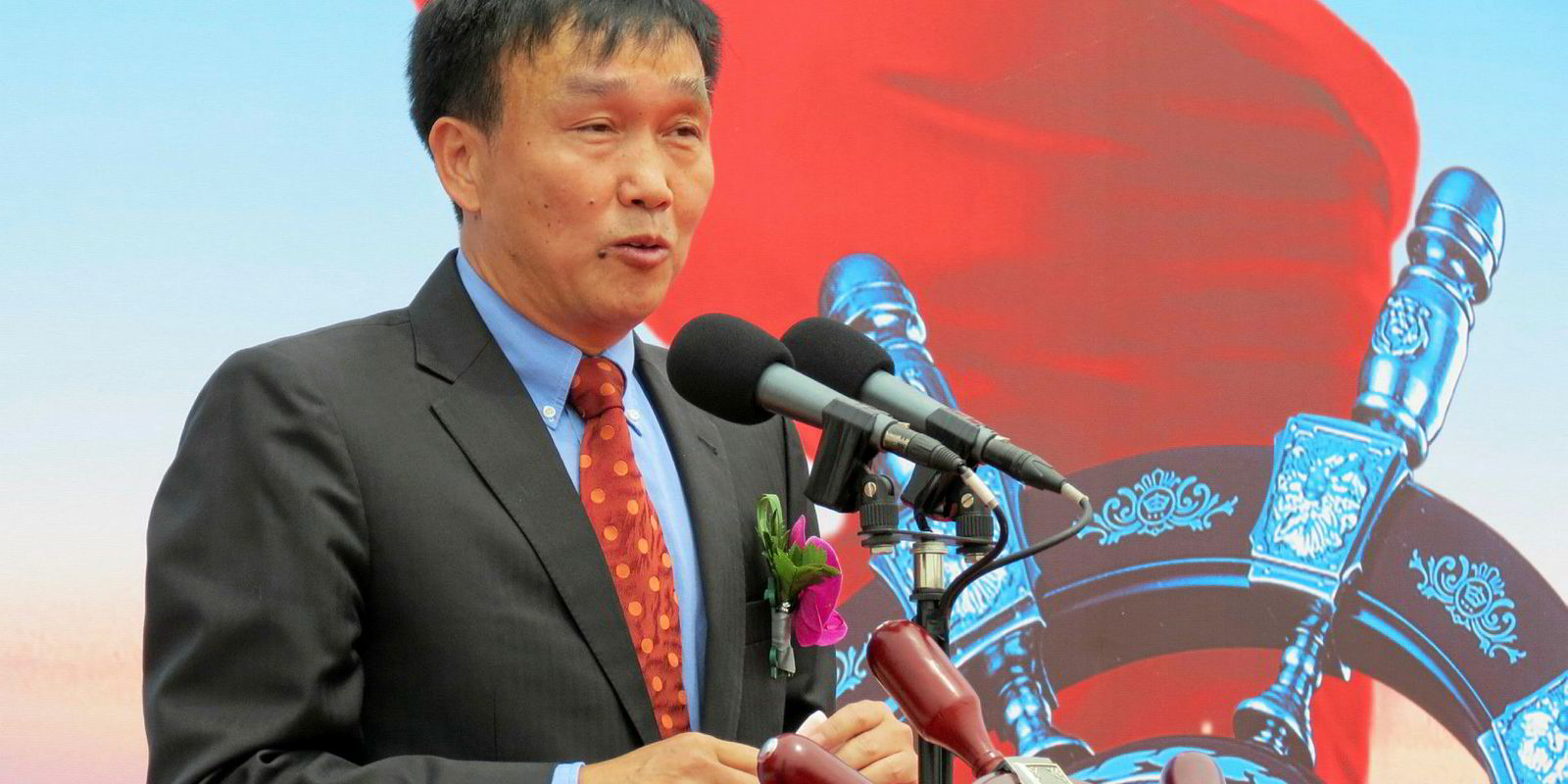A $2bn bid to take over Sinochem International Logistics has stalled amid political turmoil in the would-be buyer’s hometown.
Corruption investigations that have taken down a series of Communist Party officials in Inner Mongolia have come at an awkward time for the sale of China’s leading chemical carrier owner.
Informed sources believe the deal is dead.
Parent Sinochem International Corp has been trying since last year to spin off the subsidiary, with its chemical tanker, tank container and shoreside logistics divisions.
Management officials had been optimistic that a sale followed by an initial public offering could enable the chemical tanker operator to resume its previous ambitious growth strategy.
But the prospect of a sale to a non-shipping company was met with scepticism, and TradeWinds has previously reported on plans by executives to quit if approved candidate Inner Mongolia Junzheng Energy & Chemical Co completes its acquisition.
Now sources close to the transaction say there is no movement and no news, and they blame the political turmoil.
A series of high officials in the province-level autonomous region of Inner Mongolia have come under the searchlight of Beijing’s Central Commission for Discipline Inspection (CCDI), the Communist Party organ charged with carrying out president Xi Jinping’s anti-corruption purge.
Several of those “taken away” for investigation by the CCDI over suspicions of “serious disciplinary violations” have been present and former officials of the Inner Mongolian city of Wuhai. Regional party vice chairman Bai Xiangqun and local Wuhai official Chen Wenku were taken away in April and May.
Junzheng is Wuhai’s largest company. It is controlled by Inner Mongolia’s richest man, coal magnate Du Jiangtao, whose wealth is estimated by local financial media sources as CNY 26.5bn ($4.14bn).
Du, 55, has not been accused of any connection with the disgraced officials.
He founded Junzheng in 2003, the same year Bai began an eight-year term as mayor and then became party secretary of Wuhai before rising to regional office.
Du, a member of the honorary national committee of the Chinese People’s Political Consultative Conference, holds no political office. He is not a member of the Communist Party but of the Chinese Peasants’ and Workers’ Democratic Party, one of the country’s eight legal democratic parties, known as “the eight flower vases” for their ornamental role in national affairs.
Asked to comment on the state of the Sinochem transaction, Zhunjeng board secretary Zhang Jie told TradeWinds: “At present it is not convenient to respond to any questions whatever.”
Junzheng had already been struggling to complete its state-approved acquisition of Sinochem International Logistics at the enterprise value of CNY 12.75m, partly because the landlocked coal miner is an unknown quantity to ship finance bankers.
In December, its opening cash bid of CNY 3.45bn came in just over the reserve price in the auction process by which state-owned assets must be sold, eliminating other bidders.
Sinochem International Logistics management had told parent group officials the reserve price was unrealistically high. In addition, however, Junzheng must take over CNY 9.3bn in debt, mainly ship mortgages, and win covenant waivers from 75% of creditors. Most of the debt backing Sinochem International Logistics’ vessels, tank containers and other assets is in dollars and involves foreign lenders.
Junzheng has enjoyed the support of local banks as well as the Inner Mongolia branches of Chinese state-controlled major banks.
Because of rules on sales of corporate assets of state-owned enterprises, Sinochem International Corp cannot negotiate a sale directly, and any candidate that replaces Junzheng will have to win a new state-run auction



